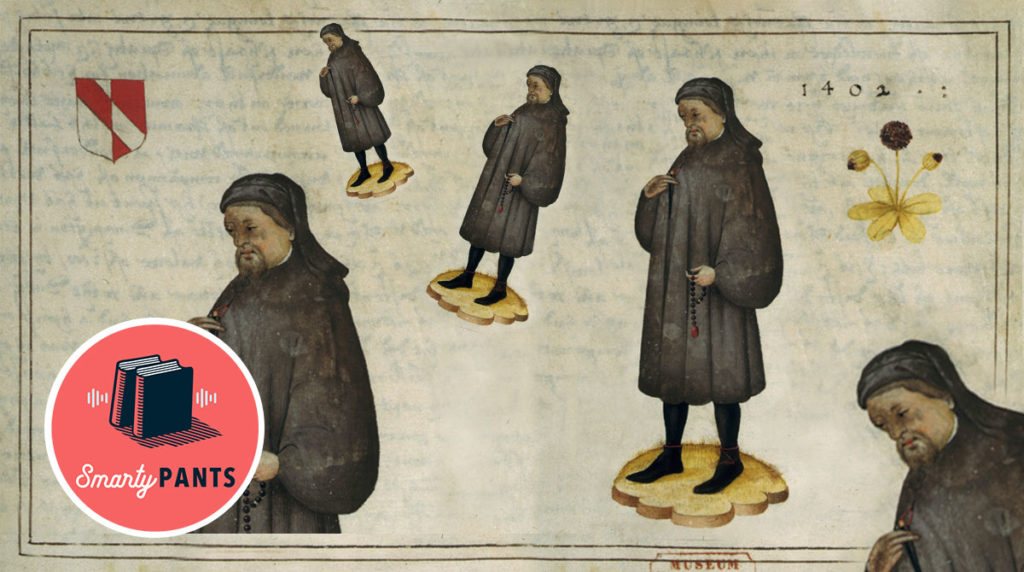The Wine-Merchant’s Son’s Tale
The first biography of Geoffrey Chaucer in a generation explores the places that inspired the English poet

Geoffrey Chaucer was born a wine-merchant’s son in 1340s London. He survived the plague, the Hundred Years’ War, the Great Rising, and an adolescence spent wearing tight pants in a rich woman’s house to become one of the most celebrated poets in English. In the first biography of Chaucer in a generation, historian Marion Turner makes the case that the man we think of as a great English poet was, in fact, a great European one. He was inspired by the literature of Italy, Spain, France, and elsewhere—but more importantly, he drew on his interactions with the people he encountered during his travels, and from the places he visited. For example, how did the frescoes of Florence give rise to the perspectives in The House of Fame? Did Chaucer’s visits to his daughter’s none-too-chaste nunnery influence the bawdy Nun’s Priest’s Tale? Marion Turner takes us back to the Middle Ages to find out.
Go beyond the episode:
- Marion Turner’s Chaucer: A European Life
- Brush up on your Middle English with the Norton edition of The Canterbury Tales or The Riverside Chaucer
Tune in every week to catch interviews with the liveliest voices from literature, the arts, sciences, history, and public affairs; reports on cutting-edge works in progress; long-form narratives; and compelling excerpts from new books. Hosted by Stephanie Bastek. Follow us on Twitter @TheAmScho or on Facebook.
Subscribe: iTunes • Feedburner • Stitcher • Google Play • Acast
Download the audio here (right click to “save link as …”)
Have suggestions for projects you’d like us to catch up on, or writers you want to hear from? Send us a note: podcast [at] theamericanscholar [dot] org. And rate us on iTunes! Our theme music was composed by Nathan Prillaman.

